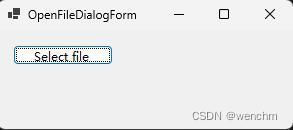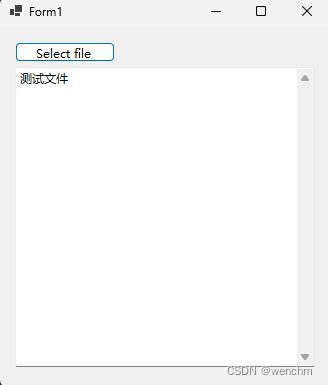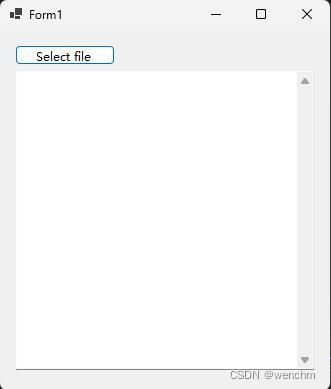- springboot/ssm教学资源管理系统web在线课程教学视频Java代码编写
Java学长-kirito
javaspringbootspring
springboot/ssm教学资源管理系统web在线课程教学视频Java代码编写基于springboot(可改ssm)+vue项目开发语言:Java框架:springboot/可改ssm+vueJDK版本:JDK1.8(或11)服务器:tomcat数据库:mysql5.7(或8.0)数据库工具:Navicat/sqlyog开发软件:eclipse/idea依赖管理包:Maven代码+数据库保证完
- c#代码介绍23种设计模式_16迭代器模式
思忖小下
.Net设计模式c#设计模式迭代器模式
目录1、迭代器模式的介绍2、迭代器模式的定义3、迭代器模式的结构4、代器模式角色组成5、迭代器实现6、迭代器模式的适用场景7、迭代器模式的优缺点8、.NET中迭代器模式的应用9、实现思路1、迭代器模式的介绍迭代器是针对集合对象而生的,对于集合对象而言,必然涉及到集合元素的添加删除操作,同时也肯定支持遍历集合元素的操作,我们此时可以把遍历操作也放在集合对象中,但这样的话,集合对象就承担太多的责任了,
- Java 在包管理与模块化中的优势:与其他开发语言的比较
nbsaas-boot
开发语言java
在开发复杂的、规模庞大的软件系统时,包管理和模块化设计起着至关重要的作用。它们不仅决定了代码的组织和可维护性,还直接影响到团队协作效率、扩展性和性能。在众多编程语言中,Java凭借其成熟的生态系统、强类型系统和标准化的包管理机制,成为了大型企业级应用开发的首选之一。本文将探讨Java在包管理和模块化方面的优势,并与其他流行语言(如Rust、Go、Python、JavaScript和C#)进行对比,
- Github 2025-02-01 开源项目月报 Top20
老孙正经胡说
github开源Github趋势分析开源项目PythonGolang
根据GithubTrendings的统计,本月(2025-02-01统计)共有20个项目上榜。根据开发语言中项目的数量,汇总情况如下:开发语言项目数量Python项目8TypeScript项目3JupyterNotebook项目2Rust项目2HTML项目2C++项目1Ruby项目1JavaScript项目1Svelte项目1非开发语言项目1Go项目1Ollama:本地大型语言模型设置与运行创建周
- 代码随想录训练营Day3|Leetcode 203.移除链表元素 Leetcode 707.设计链表 Leetcode 206.反转链表
?��??
leetcode链表算法
编程语言:C#链表定义*publicclassListNode{*publicintval;*publicListNodenext;*publicListNode(intval=0,ListNodenext=null){*this.val=val;*this.next=next;*}*}Leetcode203.移除链表元素题目链接:203.移除链表元素-力扣(LeetCode)题意:删除链表中等于
- 以Arcgis10.X要素类批量转带注记的CAD文件工具为例,分享如何利用Python的pywin32模块,将Arcgis和CAD联动起来进行二次开发。
装疯迷窍_A
arcgispython
Arcgis和CAD是每个测绘和地理信息相关专业从业者不可或缺的软件,和我们的日常工作息息相关,重要性不言而喻,经常使用到这两款软件的朋友,或多或少都有二次开发需求。而能将CAD和Arcgis联动起来二次开发的语言如C++或者C#等对专业基础又要求较高,入门较难。Python语言的pywin32模块刚合适能解决上述问题,虽然此方式的运行效率不高,不能进行深度开发,但基本可以应付我们的日常工作需求了
- C#进阶-协变与逆变
2401_87252417
c#开发语言
示例公式:若A≤B,则T可协变为T。//协变示例publicinterfaceICoVariant{TGetItem();}publicclassBaseClass{}publicclassDerivedClass:BaseClass{}//使用协变的接口ICoVariantbaseInstance=newCoVariant();BaseClassitem=baseInstance.GetItem
- C# 学习笔记
c#
pictureBox显示不出图片从网上找了一段代码,复制进visualstudio,显示本地的图片,结果始终显示不出来,查了好久,终于发现在Form1的构造函数中多了一个“InitializeComponent();”,删除就好了!消耗了太多时间。
- 深入理解C#中的using指令与类声明
郁林成森
C#using指令类声明继承修饰符
背景简介在C#编程语言中,using指令是一种常用的方式来简化对命名空间和类型的访问。本书的第28章详细讨论了using指令的使用方法和作用域,以及类声明的相关知识。本篇博客将基于这些内容,深入探讨using指令和类声明的应用和最佳实践。使用指令(usingDirectives)在C#中,using指令用于引入命名空间中的类型,使得我们可以在代码中直接使用这些类型而无需每次指定完整的命名空间路径。
- C#中的装箱与拆箱机制及其变量类别
郁林成森
C#装箱拆箱变量类型系统
背景简介在C#编程语言中,装箱(Boxing)与拆箱(Unboxing)是类型系统的核心概念之一。它们提供了一种机制,使得值类型(value-types)能够被转换成对象类型(reference-types),反之亦然。此外,C#定义了多种变量类别,每种变量类别都有其特定的作用域和生命周期。本文将基于C#的官方文档,详细介绍装箱与拆箱的机制,以及不同类型的变量。装箱与拆箱机制装箱转换装箱转换是指将
- C#常用744单词
Lu01
CommonWordsc#
1.visual可见的2.studio工作室3.dot点4.net网5.harp尖端的,锋利的。6.amework骨架,构架,框架7.beta测试版,试用版8.XML(全称:eXtensibleMarkupLanguage)可扩展标记语言9.extensible可扩展的10.ASP(全称:ActiveServerPage)活动服务器网页11.active活动的,积极的12.PocketPC掌上电脑
- C# delegate 委托使用教程
c#.net
什么是委托?委托是定义方法签名的引用类型数据类型,可以定义委托的变量,就像其他数据类型一样,可以引用与委托具有相同签名的任何方法。它允许方法作为参数传递,并允许事件驱动编程。它们提供了一种以类型安全的方式封装方法引用的方法。委托是一种类型,类似于C++的函数指针,但更安全和灵活。委托可以存储对方法的引用(或者多个方法)。委托是实现事件和回调的基础。为什么使用委托?类型安全:委托提供一种类型安全的方
- .NET使用C#设置Excel单元格数值格式
.netc#excel数字表格
设置Excel单元格的数字格式是创建、修改和格式化Excel文档的关键步骤之一,它不仅确保了数据的正确表示,还能够增强数据的可读性和专业性。正确的数字格式可以帮助用户更直观地理解数值的意义,减少误解,并且对于自动化报告生成、财务计算等应用场景来说,精确的格式控制也是保证数据准确性和一致性的重要保障。在.NET平台上,我们可以使用C#轻松完成Excel单元格的数字格式设置,实现自动化处理。本文将介绍
- MVVM的个人理解(c#)
Alucard_Zheng
知识学习wpf
1.mvvm分为三层,view,viewmodel,modelview:界面展示model:数据模型,指与数据库对应的classviewmodel:连通view与model的中间层,2.功能划分view:单纯展示界面model:单纯的数据库表的映射viewmodel:所有处理功能的集中。包括但不限于:a.view层的数据绑定b.view层的事件绑定c.借用model层的类来存储数据d.借用mode
- C#中使用FreeSql进行数据库操作,并在WPF的MVVM模式下使用
ysdysyn
c#数据库wpf
在java转C#WPF上位机,MVVM过程中,遇到数据库的问题,经过简单的学习FreeSql语法糖,进行一下简单的封装及使用。我们在C#项目中实现FreeSql技术,首先在我们需要在使用语法糖所在的文件下点击依懒性>管理NuGet程序包,搜索FreeSql并进行下载:在appsettings.json配置文件中输入数据库连接配置,如果没有可在文件夹下自行创建,这里的连接的数据库是MYSQL和SQL
- C# WPF MVVM框架从 .NET,用优雅的架构构建强大的应用程序
XsfFsharp
c#wpf.net.NET
在现代的软件开发中,采用合适的架构模式可以帮助我们构建可维护、可扩展和可测试的应用程序。WPF(WindowsPresentationFoundation)是一个强大的用户界面框架,而MVVM(Model-View-ViewModel)是一种流行的架构模式,用于在WPF应用程序中实现分离关注点的开发。本文将介绍如何使用C#和.NET平台来构建基于MVVM的WPF应用程序。在开始编写WPF应用程序之
- C# MVVM架构介绍
ysdysyn
c#wpf
MVVM架构概述MVVM定义:MVVM(Model-View-ViewModel)是一种软件架构模式,主要用于构建用户界面。它将应用程序分为三个核心部分:Model(模型)、View(视图)和ViewModel(视图模型)。这种架构模式有助于分离关注点,使得代码更易于维护、测试和扩展。架构目标:其主要目标是通过数据绑定和命令来实现视图与业务逻辑之间的松耦合,使得开发人员可以独立地开发和修改视图、业
- C#从XmlDocument提取完整字符串
Kelvin_Ngan
C#c#
方法1:通过XmlDocument的OuterXml属性,见XmlDocument类该方法获得的xml字符串是不带格式的,可读性差方法2:利用XmlWriterSettings控制格式等一系列参数,见XmlWriterSettings类例子:usingSystem.IO;usingSystem.Text;usingSystem.Xml;...XmlDocumentdoc=newXmlDocumen
- .NET/C#大型项目研发必备(5)--Web服务/WebApi的负载均衡
DeveloperSharp
负载均衡负载均衡器webapi微服务
前言:本系列文章适合有初/中级.NET知识的同学阅读。(1)本系列文章,旨在讲述研发一个中大型项目所需要了解的一系列“基本构件”,并提供这些“基本构件”的【最简单】、【最快速】使用方法!!(并不深究技术原理)(2)通过阅读本系列文章,能让你在正规“项目研发”方面快速入门+进阶,并能达成“小团队构建大网站”的目的。(3)本系列文章采用的技术,已成功应用到人工智能、产业互联网、社区电商、游戏、金融风控
- 【游戏开发】Unity手游使用XLua热更新增UI界面方法
归暮亭
游戏开发游戏开发c#lua游戏unity
**准备(前置条件):Xlua相关文件已导入工程,已经能够进行patchfile热更修改一、C#写一个LuaWindow基类包含3个步骤:1.读入lua文件:publicstaticboolLoadLuaScript(stringwindowName){if(!mLuaWindowFileDic.ContainsKey(windowName)){if(!LoadXLuaFile("..."+".b
- python难学吗?python的就业前景到底怎么样?
荆州克莱
面试题汇总与解析springcloudspringbootspring技术css3
明确的说,python不难,入门很快,对于几乎是零基础的人是完全可以学会的。个人主要总结一下3点。第一,Python最大的功劳就是直接拉低了编程门槛和使用难度相比于C,C#,JAVA这些早轮子语言学习Python完全就是直接开车的节奏稍微努力一下,一周就能写出像样的东西第二,Python学习越来越普及目前Python课程已发展到儿童编程领域很多中小学开设Python教学,统一考试很多国外学校,比如
- CAD处理组件CADViewX发布V15.2新版本,大幅改进导入和导出功能
CodeCraft Studio
3d
CADViewX是一款能让应用程序具有强大CAD图像浏览和打印功能的图像处理工具,无需任何CAD软件或查看器即可打开、浏览、打印AutoCAD等几十种格式的图像文件,还能享受直观的鼠标滚轮缩放、拖拽、平铺印画功能。CADViewX组件可用于在任何支持ActiveX技术的开发环境中(VisualC++,C#,Delphi,HTML/JavaScript等)使用矢量和光栅图像。CADViewXV15.
- 【实用技能】如何借助Excel处理控件Aspose.Cells,使用 C# 锁定 Excel 中的单元格
CodeCraft Studio
文档管理控件excelc#开发语言
锁定Excel中的单元格对于数据完整性至关重要。它可以防止用户更改重要信息。此功能广泛用于财务、项目管理和数据分析。通过锁定单元格,您可以确保关键数据保持不变。这可以增强协作并减少错误。在这篇博文中,我们将探讨如何使用C#锁定Excel中的单元格。C#Excel库用于锁定或解锁单元格Aspose.Cellsfor.NET是一个功能强大的Excel文件处理库。它简化了Excel中锁定单元格等任务。使
- Node.js 的底层原理
阿芯爱编程
面试js技巧网络前端javascript
Node.js的底层原理1.事件驱动和非阻塞I/ONode.js基于ChromeV8引擎,使用JavaScript作为开发语言。它采用事件驱动和非阻塞I/O模型,使其轻量且高效。通过libuv库实现跨平台的异步I/O,包括文件操作、网络请求等。2.单线程事件循环Node.js使用单个线程来处理所有请求,通过事件循环机制来管理并发。事件循环不断检查是否有待处理的事件或回调函数,并依次执行它们。这种模
- 打造你的专属英文打字练习软件:从零开始的C#实战教程
工控_谭校长
c#开发语言visualstudio
在当今数字化时代,打字已经成为一项必不可少的技能。无论是工作、学习还是日常沟通,快速而准确的打字能力都能极大地提高效率。为了帮助大家提升英文打字水平,本文将带你从零开始,使用C#开发一款功能完善的英文打字练习软件。通过这个项目,你不仅能学习到C#编程的核心技术,还能掌握如何设计一个用户友好的桌面应用程序。项目概述我们的英文打字练习软件将具备以下核心功能:多篇文章选择:用户可以从多篇英文文章中选择练
- Github 2025-01-31Java开源项目日报 Top10
老孙正经胡说
github开源Github趋势分析开源项目PythonGolang
根据GithubTrendings的统计,今日(2025-01-31统计)共有10个项目上榜。根据开发语言中项目的数量,汇总情况如下:开发语言项目数量Java项目10C项目1Kotlin项目1Bazel:快速、可扩展的多语言构建系统创建周期:3564天开发语言:Java协议类型:ApacheLicense2.0Star数量:22144个Fork数量:3851次关注人数:22144人贡献人数:286
- 如何使用C#的using语句释放资源?什么是IDisposable接口?与垃圾回收有什么关系?
Dr.勿忘
C#游戏开发面试c#开发语言unity游戏引擎面试
在C#中,using语句用于自动释放实现了IDisposable接口的对象所占用的非托管资源,如文件句柄、数据库连接、图形句柄等。其使用方式如下:基础用法声明并初始化资源对象:在using关键字后的括号内声明并初始化一个实现了IDisposable接口的对象。使用资源:在using语句块内使用该资源对象。自动释放资源:当程序执行离开using语句块时,无论是否发生异常,都会自动调用对象的Dispo
- 3款 .NET 开源的编辑器,包含代码、文本和Markdown编辑功能!
追逐时光者
C#.NET开源项目.net编辑器c#微软技术
前言今天大姚给大家推荐3款.NET开源、免费的编辑器,其中包含C#代码编辑器、文本编辑器和Markdown编辑器!RoslynPadRoslynPad是一个基于Roslyn和AvalonEdit开源、轻量、跨平台的C#编辑器。开源地址:https://github.com/roslynpad/roslynpad详细介绍:一个基于Roslyn和AvalonEdit的跨平台C#编辑器NotepadsN
- 类一定有基类?编程语言的基类型?基类?明明是一个通用指针类型, 为什么运行期可以找到正确的类对象?多继承的困扰?
程序员小迷
编程语言小话c++小话iosjavajvm开发语言c语言c++iosobjective-c
类一定有基类?不是所有的牛奶都叫特仑苏,也不是所有的类都有基类。C++默认情况下不限定类一定有一个原始基类,C++这种处于C和纯面向对象的设计使得它格外有选择权。对于Smalltalk/ObjC/Java/C#/Eiffel/Python默认一定有原始基类,即使语言允许不指定基类,编译器也会默认加上。例如Python中,定义一个空类,用内置函数dir查看它有哪些属性和方法。编程语言的基类型大多数面
- C# 项目代码怎么把NuGet包剥离出来?然后VS打开项目右键还原NuGet包就可以使用
凯明哲
c#开发语言
如果你想从C#.NETFramework项目中完全移除NuGet包并将其独立于项目,以下是一种方法:在VisualStudio中,打开你的C#.NETFramework项目。在“解决方案资源管理器”中,右键点击项目,选择“管理NuGet程序包”选项。在弹出的窗口中,找到要移除的NuGet包,并选择卸载。确认卸载操作,这将从你的项目中移除NuGet包。现在,你已经从C#.NETFramework项目
- rust的指针作为函数返回值是直接传递,还是先销毁后创建?
wudixiaotie
返回值
这是我自己想到的问题,结果去知呼提问,还没等别人回答, 我自己就想到方法实验了。。
fn main() {
let mut a = 34;
println!("a's addr:{:p}", &a);
let p = &mut a;
println!("p's addr:{:p}", &a
- java编程思想 -- 数据的初始化
百合不是茶
java数据的初始化
1.使用构造器确保数据初始化
/*
*在ReckInitDemo类中创建Reck的对象
*/
public class ReckInitDemo {
public static void main(String[] args) {
//创建Reck对象
new Reck();
}
}
- [航天与宇宙]为什么发射和回收航天器有档期
comsci
地球的大气层中有一个时空屏蔽层,这个层次会不定时的出现,如果该时空屏蔽层出现,那么将导致外层空间进入的任何物体被摧毁,而从地面发射到太空的飞船也将被摧毁...
所以,航天发射和飞船回收都需要等待这个时空屏蔽层消失之后,再进行
&
- linux下批量替换文件内容
商人shang
linux替换
1、网络上现成的资料
格式: sed -i "s/查找字段/替换字段/g" `grep 查找字段 -rl 路径`
linux sed 批量替换多个文件中的字符串
sed -i "s/oldstring/newstring/g" `grep oldstring -rl yourdir`
例如:替换/home下所有文件中的www.admi
- 网页在线天气预报
oloz
天气预报
网页在线调用天气预报
<%@ page language="java" contentType="text/html; charset=utf-8"
pageEncoding="utf-8"%>
<!DOCTYPE html PUBLIC "-//W3C//DTD HTML 4.01 Transit
- SpringMVC和Struts2比较
杨白白
springMVC
1. 入口
spring mvc的入口是servlet,而struts2是filter(这里要指出,filter和servlet是不同的。以前认为filter是servlet的一种特殊),这样就导致了二者的机制不同,这里就牵涉到servlet和filter的区别了。
参见:http://blog.csdn.net/zs15932616453/article/details/8832343
2
- refuse copy, lazy girl!
小桔子
copy
妹妹坐船头啊啊啊啊!都打算一点点琢磨呢。文字编辑也写了基本功能了。。今天查资料,结果查到了人家写得完完整整的。我清楚的认识到:
1.那是我自己觉得写不出的高度
2.如果直接拿来用,很快就能解决问题
3.然后就是抄咩~~
4.肿么可以这样子,都不想写了今儿个,留着作参考吧!拒绝大抄特抄,慢慢一点点写!
- apache与php整合
aichenglong
php apache web
一 apache web服务器
1 apeche web服务器的安装
1)下载Apache web服务器
2)配置域名(如果需要使用要在DNS上注册)
3)测试安装访问http://localhost/验证是否安装成功
2 apache管理
1)service.msc进行图形化管理
2)命令管理,配
- Maven常用内置变量
AILIKES
maven
Built-in properties
${basedir} represents the directory containing pom.xml
${version} equivalent to ${project.version} (deprecated: ${pom.version})
Pom/Project properties
Al
- java的类和对象
百合不是茶
JAVA面向对象 类 对象
java中的类:
java是面向对象的语言,解决问题的核心就是将问题看成是一个类,使用类来解决
java使用 class 类名 来创建类 ,在Java中类名要求和构造方法,Java的文件名是一样的
创建一个A类:
class A{
}
java中的类:将某两个事物有联系的属性包装在一个类中,再通
- JS控制页面输入框为只读
bijian1013
JavaScript
在WEB应用开发当中,增、删除、改、查功能必不可少,为了减少以后维护的工作量,我们一般都只做一份页面,通过传入的参数控制其是新增、修改或者查看。而修改时需将待修改的信息从后台取到并显示出来,实际上就是查看的过程,唯一的区别是修改时,页面上所有的信息能修改,而查看页面上的信息不能修改。因此完全可以将其合并,但通过前端JS将查看页面的所有信息控制为只读,在信息量非常大时,就比较麻烦。
- AngularJS与服务器交互
bijian1013
JavaScriptAngularJS$http
对于AJAX应用(使用XMLHttpRequests)来说,向服务器发起请求的传统方式是:获取一个XMLHttpRequest对象的引用、发起请求、读取响应、检查状态码,最后处理服务端的响应。整个过程示例如下:
var xmlhttp = new XMLHttpRequest();
xmlhttp.onreadystatechange
- [Maven学习笔记八]Maven常用插件应用
bit1129
maven
常用插件及其用法位于:http://maven.apache.org/plugins/
1. Jetty server plugin
2. Dependency copy plugin
3. Surefire Test plugin
4. Uber jar plugin
1. Jetty Pl
- 【Hive六】Hive用户自定义函数(UDF)
bit1129
自定义函数
1. 什么是Hive UDF
Hive是基于Hadoop中的MapReduce,提供HQL查询的数据仓库。Hive是一个很开放的系统,很多内容都支持用户定制,包括:
文件格式:Text File,Sequence File
内存中的数据格式: Java Integer/String, Hadoop IntWritable/Text
用户提供的 map/reduce 脚本:不管什么
- 杀掉nginx进程后丢失nginx.pid,如何重新启动nginx
ronin47
nginx 重启 pid丢失
nginx进程被意外关闭,使用nginx -s reload重启时报如下错误:nginx: [error] open() “/var/run/nginx.pid” failed (2: No such file or directory)这是因为nginx进程被杀死后pid丢失了,下一次再开启nginx -s reload时无法启动解决办法:nginx -s reload 只是用来告诉运行中的ng
- UI设计中我们为什么需要设计动效
brotherlamp
UIui教程ui视频ui资料ui自学
随着国际大品牌苹果和谷歌的引领,最近越来越多的国内公司开始关注动效设计了,越来越多的团队已经意识到动效在产品用户体验中的重要性了,更多的UI设计师们也开始投身动效设计领域。
但是说到底,我们到底为什么需要动效设计?或者说我们到底需要什么样的动效?做动效设计也有段时间了,于是尝试用一些案例,从产品本身出发来说说我所思考的动效设计。
一、加强体验舒适度
嗯,就是让用户更加爽更加爽的用你的产品。
- Spring中JdbcDaoSupport的DataSource注入问题
bylijinnan
javaspring
参考以下两篇文章:
http://www.mkyong.com/spring/spring-jdbctemplate-jdbcdaosupport-examples/
http://stackoverflow.com/questions/4762229/spring-ldap-invoking-setter-methods-in-beans-configuration
Sprin
- 数据库连接池的工作原理
chicony
数据库连接池
随着信息技术的高速发展与广泛应用,数据库技术在信息技术领域中的位置越来越重要,尤其是网络应用和电子商务的迅速发展,都需要数据库技术支持动 态Web站点的运行,而传统的开发模式是:首先在主程序(如Servlet、Beans)中建立数据库连接;然后进行SQL操作,对数据库中的对象进行查 询、修改和删除等操作;最后断开数据库连接。使用这种开发模式,对
- java 关键字
CrazyMizzz
java
关键字是事先定义的,有特别意义的标识符,有时又叫保留字。对于保留字,用户只能按照系统规定的方式使用,不能自行定义。
Java中的关键字按功能主要可以分为以下几类:
(1)访问修饰符
public,private,protected
p
- Hive中的排序语法
daizj
排序hiveorder byDISTRIBUTE BYsort by
Hive中的排序语法 2014.06.22 ORDER BY
hive中的ORDER BY语句和关系数据库中的sql语法相似。他会对查询结果做全局排序,这意味着所有的数据会传送到一个Reduce任务上,这样会导致在大数量的情况下,花费大量时间。
与数据库中 ORDER BY 的区别在于在hive.mapred.mode = strict模式下,必须指定 limit 否则执行会报错。
- 单态设计模式
dcj3sjt126com
设计模式
单例模式(Singleton)用于为一个类生成一个唯一的对象。最常用的地方是数据库连接。 使用单例模式生成一个对象后,该对象可以被其它众多对象所使用。
<?phpclass Example{ // 保存类实例在此属性中 private static&
- svn locked
dcj3sjt126com
Lock
post-commit hook failed (exit code 1) with output:
svn: E155004: Working copy 'D:\xx\xxx' locked
svn: E200031: sqlite: attempt to write a readonly database
svn: E200031: sqlite: attempt to write a
- ARM寄存器学习
e200702084
数据结构C++cC#F#
无论是学习哪一种处理器,首先需要明确的就是这种处理器的寄存器以及工作模式。
ARM有37个寄存器,其中31个通用寄存器,6个状态寄存器。
1、不分组寄存器(R0-R7)
不分组也就是说说,在所有的处理器模式下指的都时同一物理寄存器。在异常中断造成处理器模式切换时,由于不同的处理器模式使用一个名字相同的物理寄存器,就是
- 常用编码资料
gengzg
编码
List<UserInfo> list=GetUserS.GetUserList(11);
String json=JSON.toJSONString(list);
HashMap<Object,Object> hs=new HashMap<Object, Object>();
for(int i=0;i<10;i++)
{
- 进程 vs. 线程
hongtoushizi
线程linux进程
我们介绍了多进程和多线程,这是实现多任务最常用的两种方式。现在,我们来讨论一下这两种方式的优缺点。
首先,要实现多任务,通常我们会设计Master-Worker模式,Master负责分配任务,Worker负责执行任务,因此,多任务环境下,通常是一个Master,多个Worker。
如果用多进程实现Master-Worker,主进程就是Master,其他进程就是Worker。
如果用多线程实现
- Linux定时Job:crontab -e 与 /etc/crontab 的区别
Josh_Persistence
linuxcrontab
一、linux中的crotab中的指定的时间只有5个部分:* * * * *
分别表示:分钟,小时,日,月,星期,具体说来:
第一段 代表分钟 0—59
第二段 代表小时 0—23
第三段 代表日期 1—31
第四段 代表月份 1—12
第五段 代表星期几,0代表星期日 0—6
如:
*/1 * * * * 每分钟执行一次。
*
- KMP算法详解
hm4123660
数据结构C++算法字符串KMP
字符串模式匹配我们相信大家都有遇过,然而我们也习惯用简单匹配法(即Brute-Force算法),其基本思路就是一个个逐一对比下去,这也是我们大家熟知的方法,然而这种算法的效率并不高,但利于理解。
假设主串s="ababcabcacbab",模式串为t="
- 枚举类型的单例模式
zhb8015
单例模式
E.编写一个包含单个元素的枚举类型[极推荐]。代码如下:
public enum MaYun {himself; //定义一个枚举的元素,就代表MaYun的一个实例private String anotherField;MaYun() {//MaYun诞生要做的事情//这个方法也可以去掉。将构造时候需要做的事情放在instance赋值的时候:/** himself = MaYun() {*
- Kafka+Storm+HDFS
ssydxa219
storm
cd /myhome/usr/stormbin/storm nimbus &bin/storm supervisor &bin/storm ui &Kafka+Storm+HDFS整合实践kafka_2.9.2-0.8.1.1.tgzapache-storm-0.9.2-incubating.tar.gzKafka安装配置我们使用3台机器搭建Kafk
- Java获取本地服务器的IP
中华好儿孙
javaWeb获取服务器ip地址
System.out.println("getRequestURL:"+request.getRequestURL());
System.out.println("getLocalAddr:"+request.getLocalAddr());
System.out.println("getLocalPort:&quo



